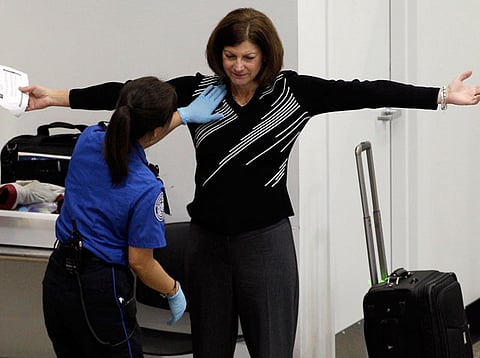Low level US intelligence is just that...
Initial reports written by the department of homeland security point to paranoid thinking that subversion is widespread

Dubai: If you drove a car with rear seats that fold down in the United States, there was reason to believe you might be involved in human trafficking.
Or you received a list of 10 recommended books for reading for Muslims, you were possibly subversive.
Attended a seminar at a mosque on how to improve your business? You are one to watch.
Even if you received marriage advice from an Imam, there was reason to suspect you were up to no good.
Hard to believe, these everyday examples of low-level information were gathered by US field offices of the Department of Homeland Security (DHS) in America and correlated into initial intelligence reports.
The good news is most were rejected as being of no use as they were reviewed, but they do point to the level of paranoia — and ignorance — that existed in the US intelligence-gathering community in the months and years following the attacks of 9/11.
The bad news? US taxpayers are on the hood to the tune of $1.3 billion (Dh5 billion) for the security apparatus that has produced little of concrete value.
In San Diego, California, intelligence officers spend $200,000 on flat-screen televisions to be used for the ominously sounding “open source intelligence gathering”.
When questioned, it turned out the phrase “open source intelligence gathering” simply meant watching the news.
One DHS intelligence officer filed a draft “human intelligence report” about a US citizen who was to spend a day at a mosque interacting with Muslims.
It turns out he was a motivational speaker and was talking to the faithful about being better parents.
The report never made it to the next level: “Intelligence personnel are not authorised to collect information regarding USPERs (US persons) solely for the purpose of monitoring activities protected by the US Constitution,” a DHS lawyer wrote on the draft.
Another DHS report noted that cars with fold-down rear seats “could be useful to human traffickers”.
“There is concern”, the drafting officer wrote in his initial submission, “that [the subject’s] visit ... could be to strengthen ties with the ... mosque as well as to conduct fundraising and recruiting for the sake of foreign terrorist organisations”.
“The number of things that scare me about this report are almost too many to write into this,” the reviewer stated about the submission. “The nature of this event is constitutionally protected activity [public speaking, freedom of assembly, freedom of religion].”
In one intelligence report November 2009, a DHS officer stationed in California reported information relating to the Fort Hood shooting, which had taken place just days earlier in Texas.
The intelligence report quoted Anwar Nassar Al Awlaki, a US-born radical Muslim cleric, who praised the shootings on his public blog.
Heady stuff, but the same report was also carried four days earlier by the Los Angeles Times, ABC News and FOX News.
That prior publication and broadcast, however, did not prevent Homeland Security officials from circulating their own intelligence report on Al Awlaki’s blog to colleagues at the National Security Agency, the Central Intelligence Agency, the Defence Intelligence Agency, the Federal Bureau of Investigation, Special Operations Command and even the White House Situation Room.
The intelligence officer who wrote the report was later praised for his efforts — and recommended for promotion!
Sign up for the Daily Briefing
Get the latest news and updates straight to your inbox



